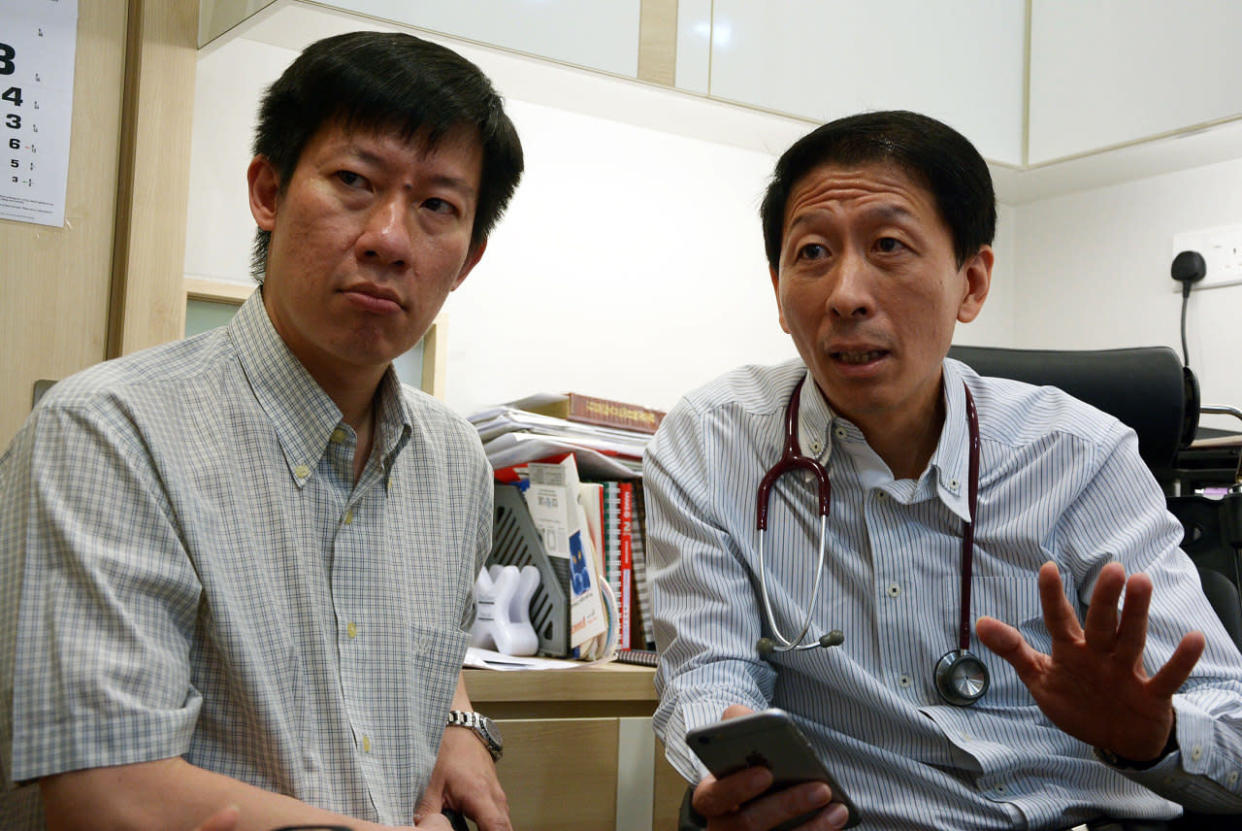This is not the time for ‘finger-pointing’: Doctor who flagged Zika in Singapore

Dr Chi Wei Ming (left) and Dr Lee Chien Chuan of Sims Drive Medical Clinic. Photo: Sharlene Maria Sanakaran
One of the doctors who first raised the alarm about the Zika virus in the Republic has urged everyone in Singapore to unite in the battle against the disease, and to avoid assigning blame for the outbreak.
Dr Chi Wei Ming, together with his colleagues Dr Lim Chien Chuan and Dr Tan May Yen of Sims Drive Medical Clinic, alerted the Ministry of Health (MOH) to a sudden spike in cases of fever, rashes and joint pain at their clinic earlier this month.
This ultimately led to the discovery of the first locally transmitted cases of Zika. Some 82 cases have been discovered by the Ministry of Health (MOH) as of Tuesday (30 August), with the majority in the Aljunied Crescent/Sims Drive cluster.
In a Facebook note on Wednesday, Dr Chi noted that the discovery of the Zika outbreak had been a “team effort” between his colleagues, MOH and the Communicable Diseases Centre (CDC).
“In the next few weeks, the daily new Zika cases is critical not just in terms of the absolute numbers, but also in its demographic profile. It’ll tell us whether Zika is still contained to one localized area or whether it is spreading to neighbouring districts or other parts of Singapore,” said Dr Chi.
But he added that it is “neither helpful nor productive” to play the blame game at this “critical juncture”. Dr Chi stressed, “Through our interactions with the relevant authorities, we know that allegations of cover up are baseless and unmerited.”
On Tuesday (30 August), while Dr Chi and his colleagues combed through their clinic’s patients’ records to identify possible Zika cases they might have missed, “there were many NEA (National Environment Agency) officers working in pairs under the hot sun, inspecting every nook and corner to eradicate mosquito breeding,” he said.
He urged Singaporeans to play their part in preventing mosquito breeding, and to practise social responsibility in order to halt the spread of Zika in the community.
For example, non-residents and those not working in Sims Drive, Aljunied Crescent, Kallang Way and Paya Lebar Way should do their best to avoid these areas, in order to contain the outbreak and avoid the appearance of new clusters.
He also urged patients to avoid going to the CDC for Zika screening, unless they have symptoms of fever, joint pain, rash or sore eyes and are living within the affected area.
“This is to ensure that our colleagues at CDC are not overwhelmed with patients and relevant cases can be attended to quickly,” said Dr Chi, adding that general practitioners can assess whether screening is necessary.
Lastly, those with symptoms should be “bold” and see a doctor for assessment.
“Breaking the chain of transmission is the key to eradicating this outbreak. For most patients, Zika is self-limiting and rarely fatal.”


